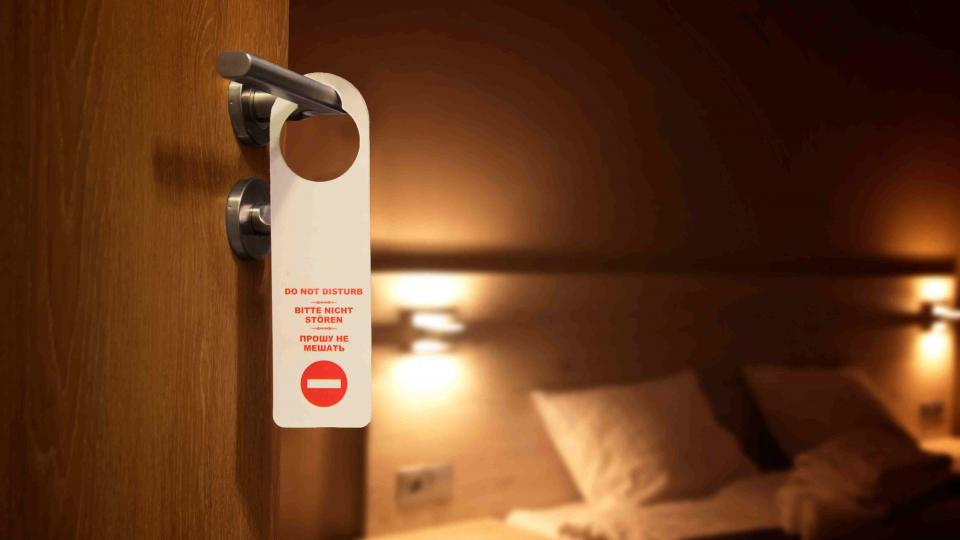
How can we tackle human trafficking in the hospitality industry?
Introduction
Back in 2012, human trafficking appeared as a very remote issue for concern among hospitality professionals and the very few cases reported at the time showed that there was no reason for any deeper investigation.
However, a closer look at the industry by Prof Alexandros Paraskevas revealed that this was not the case in spite of the statistical evidence. Working with other hospitality researchers and anti-slavery charities they were granted EC-funding to explore this heinous crime within the European hospitality sector in a project titled COMBAT.
Understanding human trafficking
Between 2014 and 2016 Prof Paraskevas and his collaborators revealed that the problem is much more serious than initially thought. Their investigation revealed that, on an average year, over 93,000 sex slaves and 4,500 labour slaves were exploited in hotels while 12,500 labour slaves were exploited in restaurants and bars.
The study identified a series of hospitality industry vulnerabilities that human traffickers are exploiting and intervention points where hospitality professionals could raise barriers in their victims’ journey through their businesses.
A main aim of the COMBAT project was to develop a toolkit for hospitality businesses that would not only raise modern slavery awareness among hotel management and staff but also offer help in developing business-specific anti-slavery policies and strategies in collaboration with law enforcement and anti-slavery organisations.
The toolkit, which was endorsed by the Institute of Hospitality, was made available for free on several hotel industry and educational websites and offered action-oriented guidance that could be tailored to the size and needs of any hospitality business and at any level, from operational to management and corporate.
Breaking the chain
The introduction of the UK Modern Slavery Act in 2015, which made it compulsory for large companies in England and Wales to have a statement on their actions towards tackling slavery in their own work and in their supply chains, made the COMBAT toolkit a valuable resource in helping hotel businesses to meet their legal obligations.
In the years following its publication, elements of the toolkit were downloaded and used by several hotel businesses and organisations.
It formed the basis of the only to-date hotel industry anti-slavery ‘Blueprint’ in UK and of a training programme developed by Shiva Foundation that has been rolled out in 89 UK hotels and completed by nearly 17,000 trainees.
Warning signs
At a more international level, Hilton Hotels included COMBAT material in their ‘in-house’ anti-slavery training which, according to their 2019 Modern Slavery Statement, was attended by 53,700 team members at 5,070 hotels.
The reach of the toolkit was significantly enhanced by the International Centre for Migration Policy Development (ICMPD) which adopted it and translate it in six languages for an EC-funded project aimed at combating modern slavery in Albania, Azerbaijan, Bosnia-Herzegovina, Moldova, Pakistan, and Turkey.
From a policy perspective, the COMBAT research and toolkit have enabled the Welsh Government’s Anti-Slavery Leadership Group to shape their policy and strategy at local and national level across Wales.
The Civil Service-led ‘UK Modern Slavery Training Delivery Group’, used it as the foundation of the work strand within its Hospitality Subgroup.
At a European level, COMBAT was used by the European Federation of Food Agricultural and Tourism Trade Unions (EFFAT) and the European Trade Association of Hotels Restaurant and Cafes (HOTREC) to inform both organisations’ anti-slavery policies.
The toolkit was also used as a basis for discussion in the European Parliament for a motion for a resolution on training for hospitality workers on signs of human trafficking and sex slavery in November 2017.
Professor Paraskevas is continuing his research on combatting modern slavery in the hospitality sector by looking at the challenges of implementation and maintenance of anti-slavery strategies in hotels and at how the hospitality sector can actively help in the re-integration of modern slavery survivors in the society.
Researcher
Professor Alexandros Paraskevas is the lead researcher for this project and is Chair in Hospitality Management and Director of The International Centre for Hospitality and Aviation Resilience Management (ICHARM).
Find out more
Find out more
-
Research Centres and Groups
Find out about our multi-disciplinary areas of expertise, PhD research, and teaching.
-
Research impact
Learn how our PhD research has helped communities locally, nationally and internationally.
-
The Graduate School
If you are interested in studying for a PhD or Professional Doctorate, the Graduate School is here to support your research.









